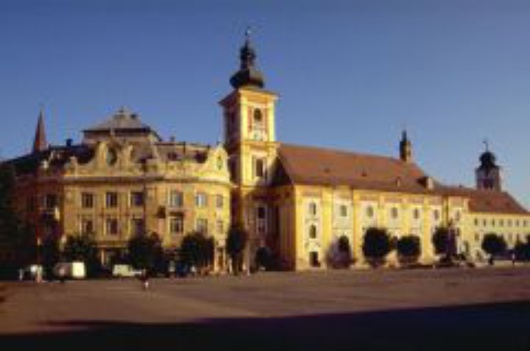Romanian-Hungarian Relations
Published on
Hungarian parties pleased with outcome of Romania's EP elections November 26, 2007
Hungarian parliamentary parties have welcomed that both the ethnic Hungarian RMDSZ party and independent candidate Laszlo Tokes fared well in Romania's European parliamentary elections on Sunday. According to exit poll results, RMDSZ won 6.2 percent of votes and Calvinist Bishop Laszlo Tokes 3.
7 percent, well above the thresholds required for European parliamentary representation.
On behalf of the main governing Socialists, Spokesman Istvan Nyako qualified the outcome of the EP elections as a victory of ethnic Hungarian voters in Romania.
Zsolt Nemeth of the main opposition Fidesz party assessed the results similarly, adding that the elected MEPs would have a chance "to create an autonomous Transylvanian Hungarian foreign policy missing for one and a half decades". Nemeth called the outcome of the elections as a success of clear-cut nation policy targets and programmes, especially in view of autonomy.
The opposition MDF party praised ethnic Hungarian voters for their "sober decision" and congratulated all Transylvanian Hungarian MEPs.
Ferenc Gemesi, State Secretary at the Prime Minister's Office in charge of minority and nation policies, qualified it as a "fine result" that both RMDSZ and Tokes made their way to the European Parliament.
 Hungarian government opens labour market to Romania
Hungarian government opens labour market to Romania
November 15 2007
Hungary will open its labour market to skilled workers from Romania from January, it was announced after a joint cabinet meeting yesterday in Sibiu (see picture), the cultural capital of Europe in 2007.
Under the agreement, Hungary will open its labour market to those with secondary or basic degree qualifications, or a skilled workers certificate, without restrictions. Only unskilled Romanian workers will have to apply for job permits.
The two sides also signed accords on border controls, building an express rail line linking Budapest, Bucharest and Constanta, supporting research on ethnic minorities, obtaining EU funds for joint projects and on financial co-operation. A further ten agreements were finalised, affecting culture, pro-tection for ethnic minorities and infrastructure development.
“Too many common issues bind the two countries together for them not to be able to rise above old grievances,” Hungarian Prime Minister Ferenc Gyurcsány told reporters meeting.
Romanian Prime Minister Calin Popescu Tariceanu said the Transylvanian town of Sibiu, this year’s cultural capital of Europe, had been selected as the venue because the joint cabinet meetings are meant to symbolise the new European spirit.



